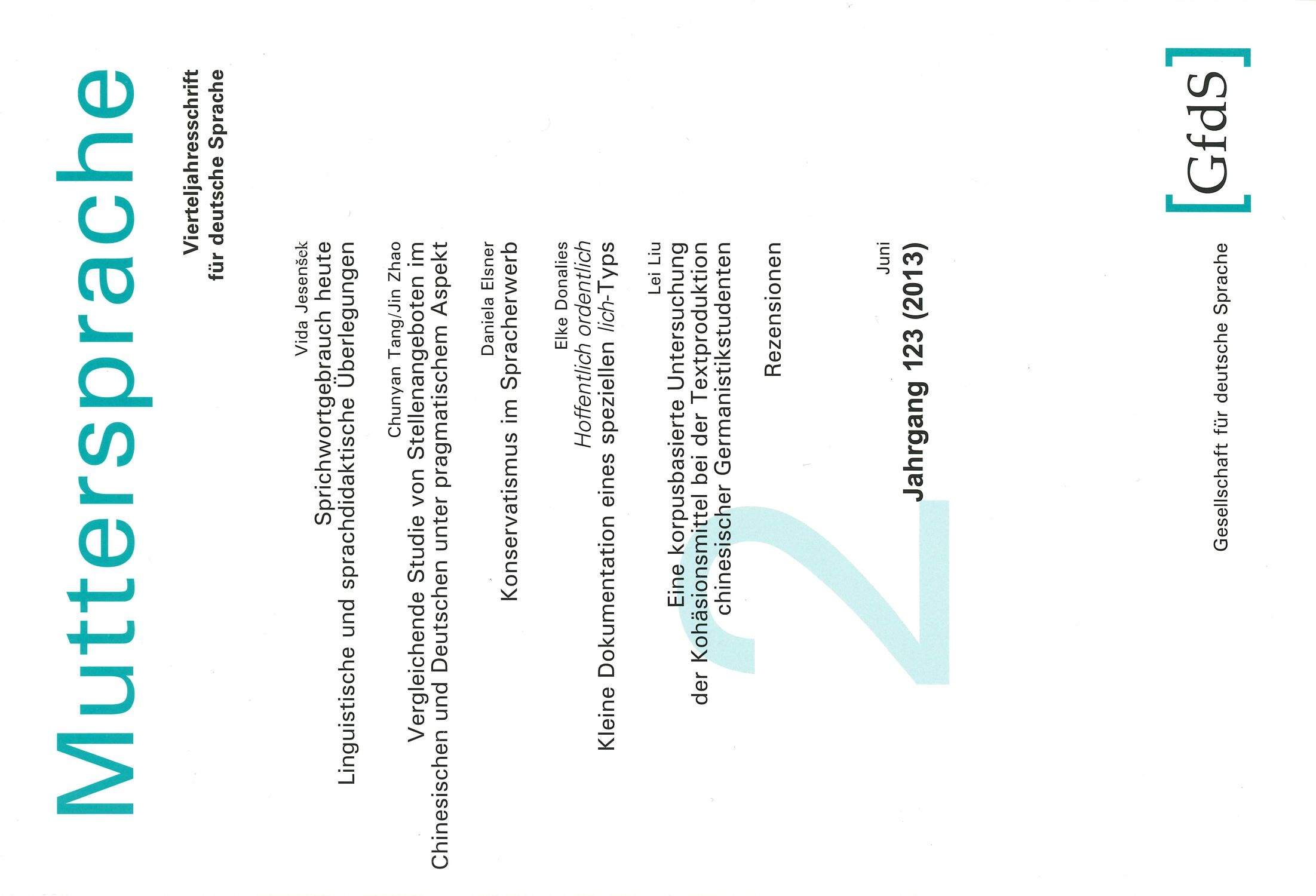Artikeldetails
Elke Donalies: Hoffentlich ordentlich – Kleine Dokumentation eines speziellen lich-Typs (MU)

Produkttyp: Beitrag (Zeitschrift)
Autor(in): Elke Donalies
Titel: Hoffentlich ordentlich – Kleine Dokumentation eines speziellen lich-Typs
Publikation in: Muttersprache, 123. Jahrgang, Heft 2
Seiten: 126–144 (19 Seiten)
Erschienen: 15.06.2013
Abstract: siehe unten

Preis: 4,90 € inkl. MwSt.
(Download)
Abstract
Die Bildung von Adjektiven mit dem Suffix lich ist im Deutschen hochproduktiv. In diesem Beitrag wird ein spezieller Typ von lich-Adjektiven gründlich dokumentiert und analysiert, nämlich die mit t oder d gebildeten Adjektive wie hoffentlich und morgendlich. Der Bestand dieses speziellen Adjektivtyps ist aktuell auf 21 etablierte und frequente Kernadjektive reduziert, besonders im 18. und 19. Jahrhundert war er erheblich umfangreicher. Die frühsten Formen sind regelmäßig t- und d-los, zum Beispiel eigenlich, im Frühneuhochdeutschen kommen t- und d-Formen auf, etablieren sich allmählich und dominieren ab dem 18./19. Jahrhundert. Strukturell sind die Adjektive heterogen. Wie für alle Bildungen mit Fugenelement können Prinzipien für die Bildung der verfugten Adjektive formuliert werden, Regeln im Sinne verlässlicher Voraussagbarkeit gibt es aber nicht.
The formation of adjectives by using the suffix lich is highly productive in German. In this article a special type of lich-adjectives will be documented and analyzed, namely those with d or t such as hoffentlich and morgendlich. The inventory of this special type is today limited to 21 well established and frequent adjectives. Especially in the 18th and 19th century there have been far more adjectives of this type. Ancient forms are regularly without t or d, for example eigenlich. In Early New High German emerge the t- and d-forms and become the dominating forms during the 18th and 19th century. The structural analysis of these adjectives is heterogeneous as it is the case for all word formations containing a so called »Fugenelement«. Therefore there are no reliable rules that could predict the formation in each individual case.